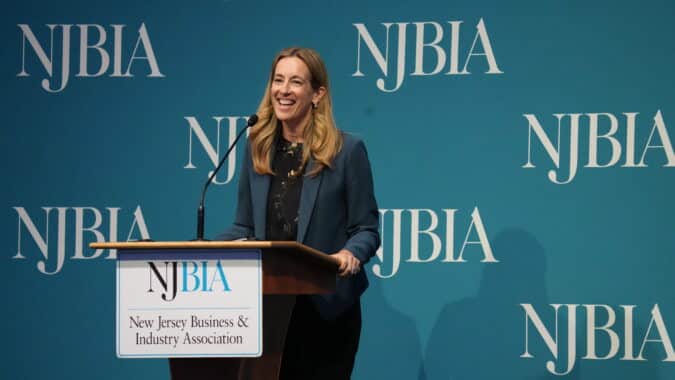Consumers could wind up paying as much as 40 percent more for auto insurance due to litigation costs under a “bad faith” bill scheduled for a vote in the Senate today, the New Jersey Business & Industry Association (NJBIA) said.
The association is urging legislators to vote “No” on S-2144.
“Let’s be clear: a vote for this bill is a vote to increase insurance premiums across the board, including the mandatory auto insurance coverage all state drivers must carry,” Chief Government Affairs Officer Chrissy Buteas said. “Allowing individuals to sue for something as vague as ‘bad faith’ would be a bad deal for everyone else who has to pay for the increased litigation.
“Driving in New Jersey is expensive enough as it is. Let’s not add another cost burden on residents and businesses,” Buteas said.
According to a report conducted by the independent actuarial firm Milliman, the bill would result in an increase of 20-39 percent for both personal auto insurance and commercial auto insurance policies. Additionally, the firm predicts:
• Commercial Multi-Peril Liability rates would increase by as much as 21 percent;
• Commercial General Liability would increase by as much as 22 percent;
• Commercial Multi-Peril non-liability would increase by 17 percent; and
• Homeowners’ insurance rates could increase by as much as 17 percent.
“Many of our members are very concerned about the overall competiveness and affordability of New Jersey,” Buteas said. “With tax hikes proposed in the budget and several labor mandates and energy regulations signed into law over the last couple of months, employers are already facing dramatic increases in their costs.”
The bill is also unnecessary, Buteas said. Currently, the New Jersey Department of Banking and Insurance has the authority to investigate bad faith complaints and penalize companies that violate the law. S-2144 would allow for individuals to sue for vague offenses like “unreasonable delay in processing a claim,” opening the door for a flood of lawsuits which would be costly to defend against or lead to costly settlements to avoid litigation.
“We do not want to see unscrupulous lawyers target businesses with meritless lawsuits in the hopes of obtaining settlements from companies afraid of litigation costs,” Buteas said. “The ultimate price will be paid by the consumer as premiums will rise to cover either the settlement or litigation costs.”



